When your garage door malfunctions, call a professional for repairs instead of attempting to perform them yourself. Many replacements and adjustments carry a high risk. There are some issues, however, that you can try to remedy at home. It’s important to know the difference in difficulty between clearing the door’s photo eyes of debris and trying to replace heavy parts.
Here are three of the top garage door problems, two of which you can fix yourself and one you should contact a professional to repair:
1. Your Car Transmitter Stops Working or Acts Strange
Transmitters and remotes need batteries, so replace those first and test your remote. Next, follow the instructions in your manual to reprogram your transmitter.
If your garage door opens and closes at random, see if your remote has fallen between your car seats or somewhere else and then put it in a safe place. If the issue persists, your door might be responding to your neighbor’s transmitter. Your manual will tell you how to change your frequency to take care of this problem.
2. The Motor Runs for a Few Seconds but Your Door Stays Put
If you hear your door opener running but nothing happens, check the connection between the motor and disconnect switch. Your garage door opener has a disconnect switch so you can open and close your door manually when the power goes out. Sometimes this comes loose. Open your door, reattach the hook and try operating the door with your transmitter. If problems persist, call in a professional.
When your door opener runs for a few seconds and shuts off without moving the door, check your door for locks. If it has a lock, you’ll see bars across the inside with a knob in the middle. Turn the knob until it clicks to disengage the lock. Running the motor with the lock in place will damage your garage door, so it’s always best to make sure the lock is disengaged before opening your door.
3. Your Garage Door Starts Opening and Then Closes
If either of these things happens to you, the springs that open and close your door need replacement. Depending on your garage door, you might have torsion or extension springs. Both act as a counterbalance for your garage door’s weight, so replacing them yourself is dangerous. It’s also possible that your sensors may be out of line.
Why Garage Door Springs Break
The springs in your garage door have a fixed number of cycles before they need replacement. Excessive use shortens their lifetime, but each one wears out at some point. Installing high-quality springs ensures your springs last as long as possible. Depending on your door, you might have torsion or extension springs. Most new garage doors use torsion springs for double doors and extension springs for single doors, but older models may have tension springs. Worn torsion springs cause your garage door to open partway and then close again. The torsion springs lift your door, so your door will struggle to open after they pass the point of requiring replacement. If your tension springs break, your door will close too fast and slam against the ground. If you think your springs are worn out or broken, avoid using the door until it’s fixed.
Call Us to Repair Your Garage Door
When you experience common garage issues, call the experts at EXL Garage Doors. Eugene has over two decades of experience installing, repairing and performing maintenance on garage doors. Our team is proud to provide the Gallatin, Franklin and Nashville areas with the best service available. If your garage door needs maintenance, call EXL Garage Doors today at (615) 863-5106.
